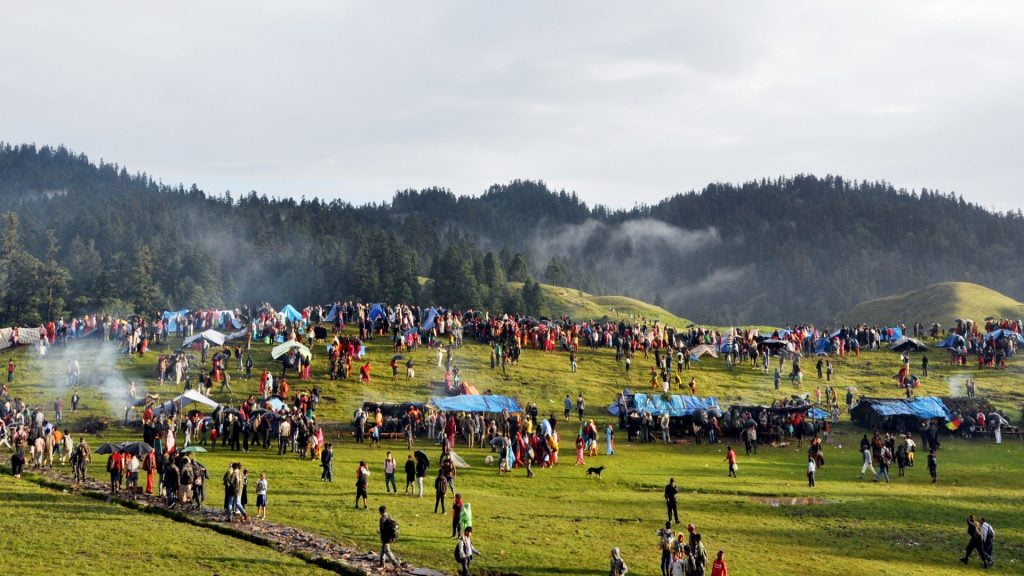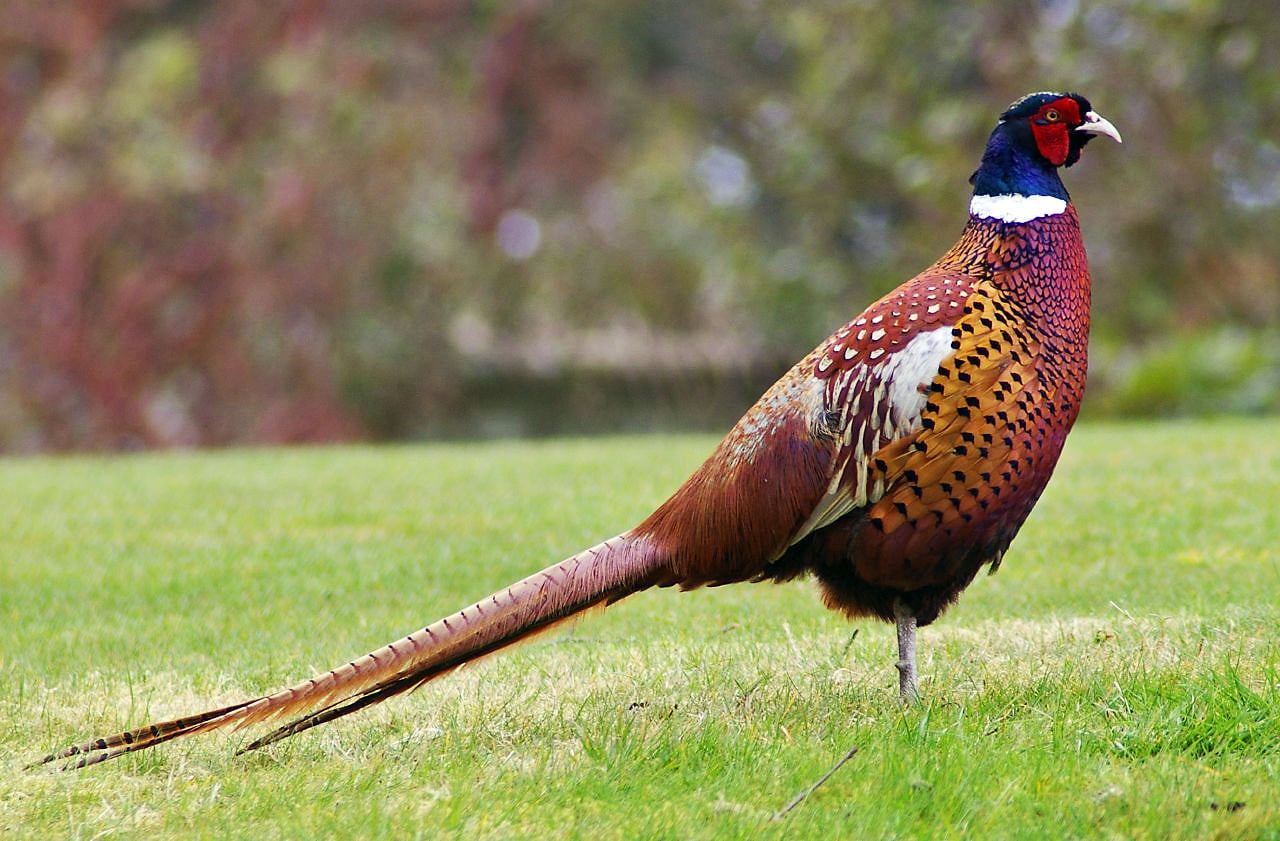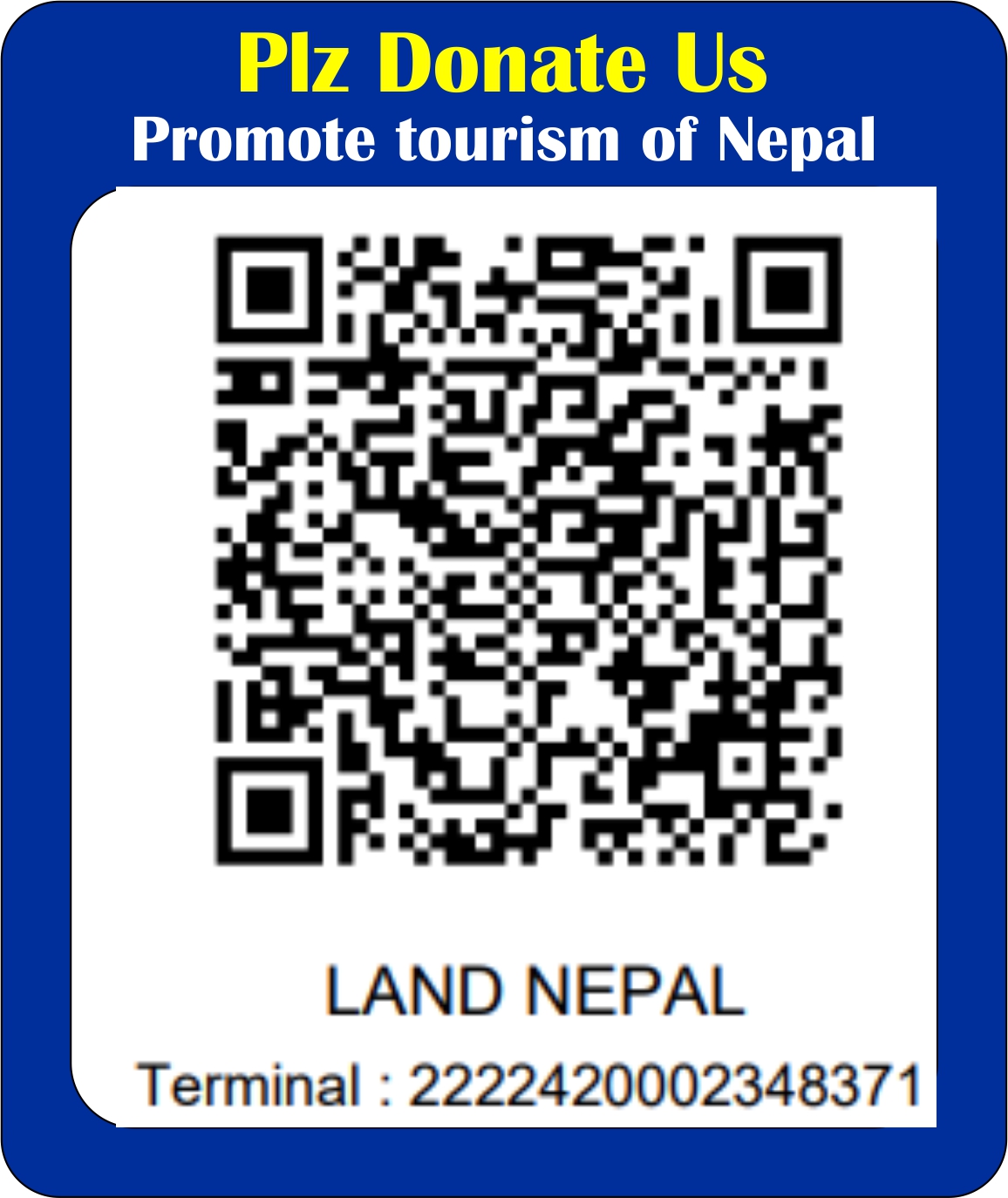Khaptad National Park, established in 1984, Covering the total area of 225 square kilometers with the buffer zone of 216 square kilometers, extended over parts of Achham, Bajura, Bajhang and Doti districts, lies in the far-western province of Nepal. The park derives its nomenclature after the name of late Khaptad Swami, a HIndu sage and teacher, who chose to go to this area in the year 1940 and spent around 50 years of his thoughtful time meditating and worshipping. Near the park headquarters lies the Ashrama, a place where Khaptad Baba resided, known as Khaptad Baba Ashrama.
Triveni, the confluence of three rivers of religious importance and faith, named Akashganga flowing from the east, Swarnaganga flowing from where Sahashralingas, meaning hundreds of genital organs made into stones of Lord Shiva, and Nilaganga flowing from the north direction, contains a famous temple of Shiva Bhagawan, including other religious places like Ganesh temple, Kedardhunga and Nagadhunga. A fare known as Ganga Dashahara is celebrated at Triveni during the period around the full moon day, Purnima, of the month Jeshtha according to Nepali calendar, which happens to be in the months of May and June accordingly. Sahashralinga , situated at the height of 3300 meters from the sea level, the highest point of the entire park zone, is of great religious and cultural significance. Unlike other Hindu pilgrimages, alcohol, tobacco and animal sacrificing are strictly prohibited here. It is believed that taking bath in the holy water of Triveni and worshipping Sahashralinga and other temples washes people of their sins and redemption is achieved.
There are a museum and a tower at the headquarters, from where you can view beautiful sight of Saipal Himalayan Ranges in the north and green meadows in the south. Khaptad Daha, a lake, lies to the northern side of the park. They celebrate Bhadra Purnima, full moon day in the month of Bhadra according to Nepali calendar.
Spring and Autumn seasons, that is March-May and October-November, are the best time to visit the park. The temperature remains between 10% and 20%, which is fine weather for trekking. June brings Monsoon which continues until September. Winter from December to February is marked by chill wind and cold.
The park is rich with different flora and fauna. sal,alder, spruce, hemlock, maple, oak, fir, birch,rhododendron are available in abundance there. 135 species of flowers grow in the park. There are almost 224 species of plants, which can be processed for making medicinal herbs. The park makes up a home for around 200 species of birds including the Danphe Chari , (Nepal’s national bird), peacock, cuckoo, bulbul, flycatcher, eagle and partridge. Wild boars, Himalayan black bears, barking deer, gorals, jackals, yellow-throated marten, rhesus, long-tailed black-mouthed monkeys, musk deer, wild dogs and leopards offer impressive attraction and pleasure there.
You will find sporadic tea shops, but no hotels over there. So it is best to undertake a visit to Khaptad National Park only after making sure that you suffice with food, fuel, common medicines, tents, etc.
To get to the park, you can take a flight from Nepalgunj to Dipayal, and from there head to Silgadhi, from where the park entrance is a six-hour hike.
-Article written by: Bedu Khatiwoda for Land Nepal





